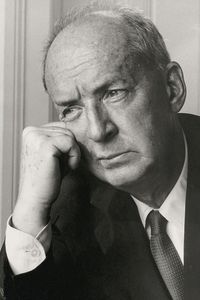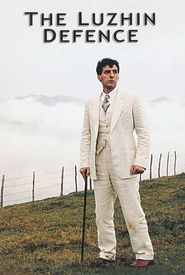Vladimir Vladimirovich Nabokov, a highly accomplished and multifaceted Russian-born literary genius, emerged into the world in Imperial Russia in the year 1899, a time of grandeur and opulence. This extraordinary individual, blessed with an insatiable thirst for creativity and intellectual pursuits, wore many hats throughout his illustrious career, effortlessly transitioning between the roles of novelist, poet, translator, critic, and entomologist, each one a testament to his boundless energy and passion for the arts. Renowned for his unparalleled post-1917 émigré authorship, Nabokov's remarkable body of work continues to captivate and inspire readers to this day, a lasting legacy that speaks to his enduring impact on the literary world.
Vladimir Nabokov's literary journey commenced with the authorship of his first nine novels, all of which were penned in Russian during his sojourn in Berlin, a city that proved to be a fertile ground for the development of his distinctive writing style.
Vladimir Nabokov, a renowned scholar and literary giant, spent a significant portion of his illustrious career as a professor of Russian literature at Cornell University, a prestigious institution of higher learning, from 1948 to 1959.
Notably, the literary career of this celebrated author took a remarkable turn with the incorporation of parody as a recurring element, commencing with the creation of his esteemed work, "The Gift", spanning the years 1937 to 1938. Subsequently, this innovative author continued to weave the thread of parody throughout the fabric of his subsequent novels, leaving an indelible mark on the literary world.
As his reputation as a master of the written word continued to flourish, this erudite author penned a series of English-language novels that would go on to captivate audiences worldwide. Among these notable works, one stands out in particular as a testament to his provocative genius: the internationally acclaimed bestseller, "Lolita", published in 1955. This landmark novel not only catapulted its author to unprecedented levels of fame and wealth but also cemented his status as a literary icon.
Furthermore, the years that followed saw the publication of two more English-language novels that would further solidify his position as a literary giant. "Pale Fire", released in 1962, and "Ada", published in 1969, both showcased the author's unparalleled skill in crafting complex, thought-provoking narratives that continue to engage and inspire readers to this day.
Next person biography:
Nabokov's 1957 novel, Pnin, is a masterful work that drew heavily from his own experiences as a literature professor in the United States, offering a poignant and deeply personal portrayal of an émigré professor of Russian, with all the complexities and nuances that such a character would bring to the page.
Throughout the novel, Nabokov's own experiences as a Russian émigré living in the United States are woven seamlessly into the narrative, lending a level of authenticity and depth to the story that is simply unmatched.
The character of Pnin, a Russian émigré professor of Russian, is a poignant and powerful exploration of the human experience, offering a nuanced and thought-provoking portrayal of the struggles and challenges that many émigrés face when adapting to a new culture and society.
In addition to his work as a novelist, Nabokov was also a prolific scholar and critic, and his critical works are a testament to his vast knowledge and expertise in the field of literature.
One of his most notable critical works is his monumental translation and commentary on Aleksandr Pushkin's Evgeny Onegin, which is widely regarded as one of the most comprehensive and authoritative translations of the work to date.
This translation and commentary solidified Nabokov's reputation as a literary giant, and cemented his place as one of the most important and influential literary figures of the 20th century.
Nabokov's work as a translator and commentator is a testament to his passion for literature and his commitment to sharing the works of other writers with a wider audience.
His translations and commentaries are not only a valuable resource for scholars and students, but also a testament to his own literary skill and expertise, and a reminder of the importance of translation and commentary in the dissemination of literary works.
As the years went by, the literary output of this renowned author remained a constant source of fascination for readers across the globe, ultimately resulting in a profound and enduring impact that continues to shape the creative endeavors of writers and scholars alike, with his remarkable body of work serving as a timeless testament to his boundless talent and unwavering dedication to his craft.
---
Vladimir Nabokov
Born on April 22, 1899, in St. Petersburg, Russia, Vladimir Nabokov was a Russian-American novelist, poet, and translator.























